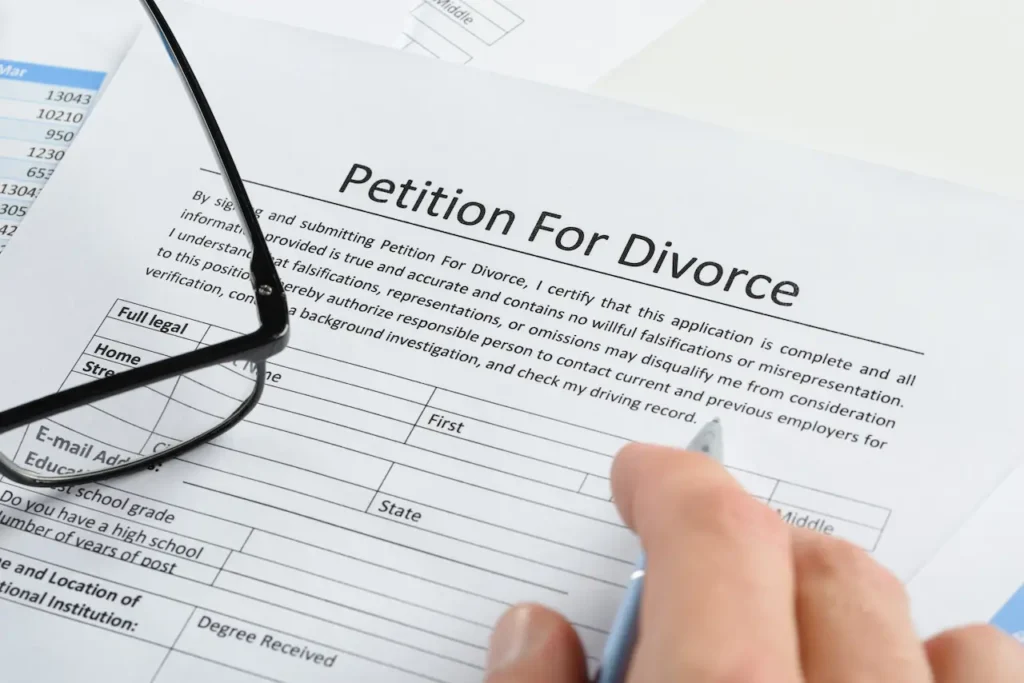Maybe the arguments have gotten louder. Or maybe you just need space to think clearly. Whatever the reason, if you’re thinking about moving out of the house before your divorce in Massachusetts is finalized, you’re not alone. It’s a common step, but one that comes with serious legal consequences if not handled carefully.
Let’s walk through what happens when you leave the marital home, how it could impact custody, property rights, or support, and what you can do to protect yourself, especially if you’re in Worcester or nearby towns like Auburn, Shrewsbury, Millbury, or Grafton.
Should You Move Out of the Marital Home Before Filing for Divorce?
Yes, if you have safety concerns, but no in many other situations.
What Are the Legal Risks of Leaving before the Divorce Is Finalized?
The legal risks of leaving the marital home before filing for divorce include potential claims of constructive abandonment, custody complications, and financial misunderstandings.
In Massachusetts, if you move out of the joint marital residence without a written agreement or legal reason, your spouse may later argue that you “abandoned” the family. This is called constructive abandonment. While it rarely determines property rights (it doesn’t mean you’ve forfeited your share of the home), it could weaken your case in custody or spousal support disputes.
Questions like “Does moving out hurt my case?” or “Should I stay in the house during divorce?” come up a lot. The answer depends on your situation, but you shouldn’t leave without a plan.
Are There Valid Reasons to Leave before Filing?
Yes, there are valid reasons to leave the marital home before filing for divorce, including safety concerns, serious emotional stress, or the need to prepare for separation.
If you’re dealing with verbal abuse, domestic violence, or mental health challenges, it’s okay to prioritize your well-being. But even then, it’s best to speak with a divorce attorney before leaving. Your lawyer may help you file for a temporary restraining order (TRO) or a motion for exclusive use and occupancy to establish legal protections before you go.

How Does Moving Out Affect Child Custody?
It can affect custody arrangements and more.
Will Leaving the Home Reduce Your Chances of Getting Custody?
Yes, moving out before or during a divorce can reduce your chances of getting custody if it limits your role in day-to-day parenting.
Massachusetts family courts focus on the best interests of the child, and one key factor is which parent is more involved in everyday care. If you leave and stop participating in your child’s routine (school pickups, meals, doctor visits), it may suggest to the court that your co-parent is more stable or available. Judges don’t like to disrupt a child’s status quo.
What If You Move But Still Spend Time with Your Kids?
If you move but still spend time with your kids, you can protect your custody claim by documenting your involvement and filing for temporary parenting orders.
Even after moving out, it’s crucial to stay involved and visible. Work with your attorney to establish a temporary custody order or file a proposed parenting time schedule. In some cases, the court may appoint a guardian ad litem (GAL) to evaluate both households before deciding on shared legal and physical custody.
How Does Moving Out Affect Property Division?
It should not affect it because of how Massachusetts approaches dividing marital property.
Can Moving Out Cause You to Lose Your Rights to the Home?
No, moving out of the marital home does not mean you give up your rights to it. Massachusetts uses equitable distribution (not possession) to determine property division.
Under M.G.L. c. 208 §34, what matters isn’t who’s living in the house, but how the property fits into the overall marital estate. You still may be entitled to part of the home equity distribution, even if you moved out months ago. However, you should avoid signing any quitclaim deed or other agreement that affects ownership without speaking to a lawyer.
Should You Remove Personal Belongings When Leaving?
Yes, you should remove your personal belongings when moving out, but document what you take and avoid taking shared property without agreement.
Take photos, make a checklist, and be mindful of what’s jointly owned. If you remove furniture, electronics, or valuables, your spouse could accuse you of theft or “spoliation”, which is basically the destruction or concealment of property. To be safe, consider filing a temporary order for property use to clarify what you’re entitled to take.

Can Your Spouse Accuse You of Abandonment?
In some cases, yes, unless you protect yourself.
What Is Abandonment in Massachusetts Divorce Law?
In Massachusetts divorce law, abandonment means one spouse left the marital home without justification, warning, or continued support, and it’s called constructive desertion.
Constructive abandonment doesn’t happen just because you moved out. But if you vanish without notice, cut off financial support, or stop seeing your kids, your spouse may try to raise an abandonment claim. These claims are rare, but they can add tension and delay to your case.
How Do You Protect Yourself From That Accusation?
To protect yourself from abandonment accusations, give written notice before you leave, explain your reasons, and continue to support your family as much as possible.
If you’re helping with bills, parenting duties, or groceries, make sure there’s a paper trail. If you can, file for temporary spousal support or shared custody to formalize your continued involvement. And if tensions are high, document everything. Massachusetts family law precedent rewards those who stay cooperative, even from a distance.
What Court Orders Should You Seek If You Plan to Move Out?
They can include temporary parenting plans, child support orders, financial restraining orders, and even a motion for exclusive use of the marital home if you plan to return and live in it after the divorce.
Should You Request Exclusive Use of the Marital Home?
Yes, if you’re staying in the home or want to return to it, you should file a motion for exclusive use and occupancy.
This order gives one spouse legal authority to live in the home while the divorce is pending. It’s especially useful if you’ve been asked to leave or are worried about being locked out. Courts issue these orders when conflict, safety, or stability for the children is at stake.
What Other Protective Orders Can You Request?
Other protective orders include a temporary parenting plan, child support orders, or a financial restraining order to prevent your spouse from draining accounts or selling assets.
In Worcester, Standing Order 1-11 requires financial disclosure early in the divorce. Filing temporary motions helps preserve your rights before either spouse makes moves the other can’t undo.
How Do Courts View Temporary Living Arrangements?
They can affect everything moving forward if the court sees that they’re working.
Do Temporary Living Situations Influence Long-Term Orders?
Yes, temporary living arrangements can shape long-term decisions about custody, support, and even property division.
Massachusetts courts try not to disrupt what’s already working. If your kids settle into a new routine with your spouse in the family home and you’re living out of state or in temporary housing, that new “normal” may become permanent. Judges prioritize consistency and may base final orders on the status quo precedent.
Should You Stay with Family, Rent, or Buy a New Place?
It depends. Staying with family can help with childcare and finances but may appear unstable. Renting shows independence but buying a home might suggest you no longer need support.
You don’t have to commit to one path. Talk to your lawyer about how your rental agreement or temporary setup may affect support calculations or visitation. If possible, prioritize a stable, child-friendly environment even if it’s small.
What If You Feel Unsafe Staying in the Home?
If you feel unsafe, you have options to protect both you and your rights.
Can You Leave Immediately and Still Protect Your Rights?
Yes, if you feel unsafe, you can leave immediately and still protect your rights by filing an emergency motion for temporary orders or a 209A protective order.
Safety comes first. If there’s emotional abuse, threats, or violence, go. But don’t leave your rights behind. File a complaint for exclusive use, seek a temporary custody order, and notify your lawyer as soon as possible. Courts in Worcester take safety concerns seriously.
What Protections Does the Court Offer for Domestic Abuse Victims?
Massachusetts offers strong protections for domestic violence survivors, including 209A Abuse Prevention Orders, emergency housing, and legal advocacy through groups like SafePlan in Worcester District Court.
You may also be eligible for shelter services or legal aid. Local Worcester-area resources can help you leave safely while preserving your custody or property claims.
How Does Moving Out Impact Your Finances?
It can change support calculations, but won’t eliminate the need for financial support.
Will Moving Out Change Alimony or Support Calculations?
Yes, moving out can shift how household contributions are calculated, but it doesn’t eliminate your obligations or rights.
Massachusetts courts may issue temporary spousal support or child support orders based on the new living situation. Moving out could increase or decrease what you owe or receive, depending on who pays for housing, childcare, and daily expenses.
Are You Still Responsible for the Mortgage and Bills?
Often, yes. Until a court says otherwise, both spouses usually remain responsible for shared marital debts, including the mortgage, utilities, and household expenses.
You can file a motion for contribution to household expenses if you’re shouldering the burden alone. Courts generally aim to preserve the home and routines for the kids, even while you’re figuring out who lives where.

What Steps Should You Take Before Moving Out?
Document everything, including bank statements, and cover all your bases.
What Legal and Practical Steps Protect Your Interests?
Before moving out, take photos of shared property, make digital copies of certified bank statements, and create a timeline of events.
Prepare an inventory checklist of what you’re taking and what you’re leaving behind. If possible, get a written agreement about the move, or notify your spouse in writing. This can help you avoid future misunderstandings or accusations of bad faith.
Should You Consult Your Attorney First?
Yes, always. Your attorney can file motions to protect your claim to home equity, establish a custody routine, or set up temporary support. They’ll also help preserve your rights and prevent your spouse from twisting your departure into something it’s not.
How a Worcester Divorce Attorney Can Help If You’re Moving Out
A Worcester divorce attorney brings a great deal of expertise to the situation.
Can a Lawyer Help File Protective Orders or Negotiate Home Use?
Yes. A divorce attorney in Worcester, MA, can file for exclusive use, parenting time, and temporary support while making sure you don’t give up anything you’re entitled to.
Whether you need to leave for safety, sanity, or stability, a local lawyer can help you move with confidence and stay legally protected.
What Local Experience Matters in Worcester Courts?
Experience with Worcester Probate and Family Court procedures, emergency motion timing, and local filing rules is key. From the clerk’s office to mediation alternatives, a seasoned local attorney knows how to get your paperwork filed and your voice heard.
FAQ
Does moving out before filing for divorce hurt your case?
It can, especially with custody, if it looks like you walked away from your responsibilities. But done correctly, it doesn’t forfeit your rights.
Can my spouse keep me out of the house if I leave?
Not unless they get a court order. You can still file to return or claim your share of the home.
Will I lose custody if I move out first?
Not automatically. But courts will want to see that you stayed involved with your kids after moving.
Should I wait for a court order before moving?
If possible, yes. But if you must leave suddenly, protect yourself with a written record and legal filings.
What if I left the home months ago and now want to file?
You can still file. But talk to a lawyer about how the time away might affect custody or property claims.
If you’re thinking about moving out before or during a divorce, don’t make that decision alone. In Massachusetts, and especially around Worcester, the way you leave can matter as much as why.
